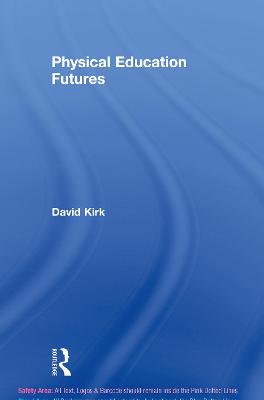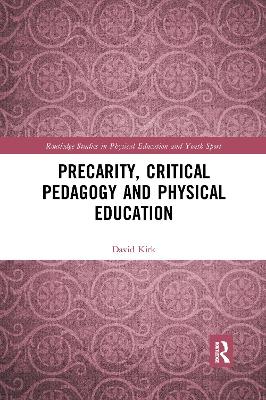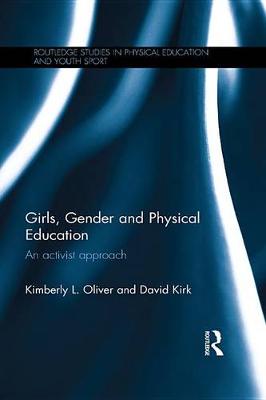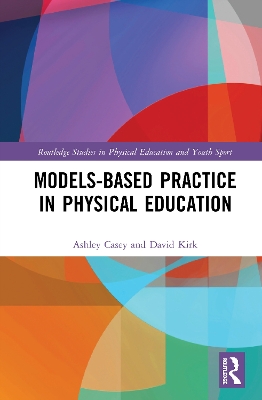Routledge Studies in Physical Education and Youth Sport
4 total works
Can we imagine a future in which physical education in schools no longer exists?
In this controversial and powerful meditation on physical education, David Kirk argues that a number of different futures are possible. Kirk argues that multi-activity, sport-based forms of physical education have been dominant in schools since the mid-twentieth century and that they have been highly resistant to change. The practice of physical education has focused on the transmission of de-contextualised sport-techniques to large classes of children who possess a range of interests and abilities, where learning rarely moves beyond introductory levels. Meanwhile, the academicization of physical education teacher education since the 1970s has left teachers less well prepared to teach this programme than they were previously, suggesting that the futures of school physical education and physical education teacher education are intertwined.
Kirk explores three future scenarios for physical education, arguing that the most likely short-term future is `more of the same'. He makes an impassioned call for radical reform in the longer-term, arguing that without it physical education faces extinction. No other book makes such bold use of history to interrogate the present and future configurations of the discipline, nor offers such a wide-ranging critique of physical culture and school physical education. This book is essential reading for all serious students and scholars of physical education and the history and theory of education.
This unflinching analysis explains the nature of precarity and its detrimental effects on the health and wellbeing of young people. It exposes physical educators’ unpreparedness to provide inclusive, fair and equitable forms of physical education that might empower young people to overcome the mal effects of precarity.
Following a thorough analysis and critique of critical pedagogy, David Kirk advocates for critical pedagogies of affect as physical education’s response to precarity, providing detailed outlines of these pedagogies and their grounding in research. He argues that now more than ever physical educators need to be alive to the serious social and economic challenges that shape young people’s health, happiness and life chances.
This bold and provocative book is essential reading for all researchers in the field of physical education and health education pedagogy, as well as teacher educators, curriculum policy makers, and other professionals who work with young people living in precarity.
In this powerfully argued and progressive study, Kimberly Oliver and David Kirk call for a radical reconstruction of the teaching of physical education for girls. Despite forty years of theorization and practical intervention, girls are still disengaging from physical education, dropping out of physical activity, and suffering negative consequences in terms of their health and well-being as a result. This book challenges the conventional narrative that girls are somehow to blame for this disengagement, and instead identifies important new ways of working with girls, developing a new pedagogical model for ‘girl-friendly’ physical education.
The book locates our understanding of the experiences of girls in physical education in the broader context of young people’s multifaceted engagements with popular physical culture. Adopting an activist perspective, it outlines a programme of action informed by principled pragmatism and based on four critical elements: student-centred pedagogy; critical study of embodiment; inquiry-based physical education centred-in-action, and listening and responding to girls over time. It explores the implications of this new thinking for teaching, research, PETE and policy, and outlines a future agenda for work in this area.
Offering a profound theoretical critique of contemporary research and practice, as well as a new programme of action, Girls, Gender and Physical Education is essential reading for all researchers, advanced students and practitioners with an interest in the issues of gender, equity and inclusion in physical education.
Models-based Practice in Physical Education
by Ashley Casey and David Kirk
This book offers a comprehensive synthesis of over 40 years of research on models in physical education to suggest Models-based Practice (MbP) as an innovative future approach to physical education. It lays out the ideal conditions for MbP to flourish by situating pedagogical models at the core of physical education programs and allowing space for local agency and the co-construction of practice.
Starting from the premise that true MbP does not yet exist, the book makes a case for the term "pedagogical model" over alternatives such as curriculum model and instructional model, and explains how learners’ cognitive, social, affective and psychomotor needs should be organised in ways that are distinctive and unique to each model. It examines the core principles underpinning the pedagogical models that make up MbP, including pedagogical models as organising centres for program design and as design specifications for developing local programs. The book also explores how a common structure can be applied to analyse pedagogical models at macro, meso and micro levels of discourse. Having created a language through which to talk about pedagogical models and MbP, the book concludes by identifying the conditions - some existing and some aspirational - under which MbP can prosper in reforming physical education.
An essential read for academics, doctoral and post-graduate students, and pre-service and in-service teachers, Models-based Practice in Physical Education is a vital point of reference for anyone who is interested in pedagogical models and wants to embrace this potential future of physical education.



